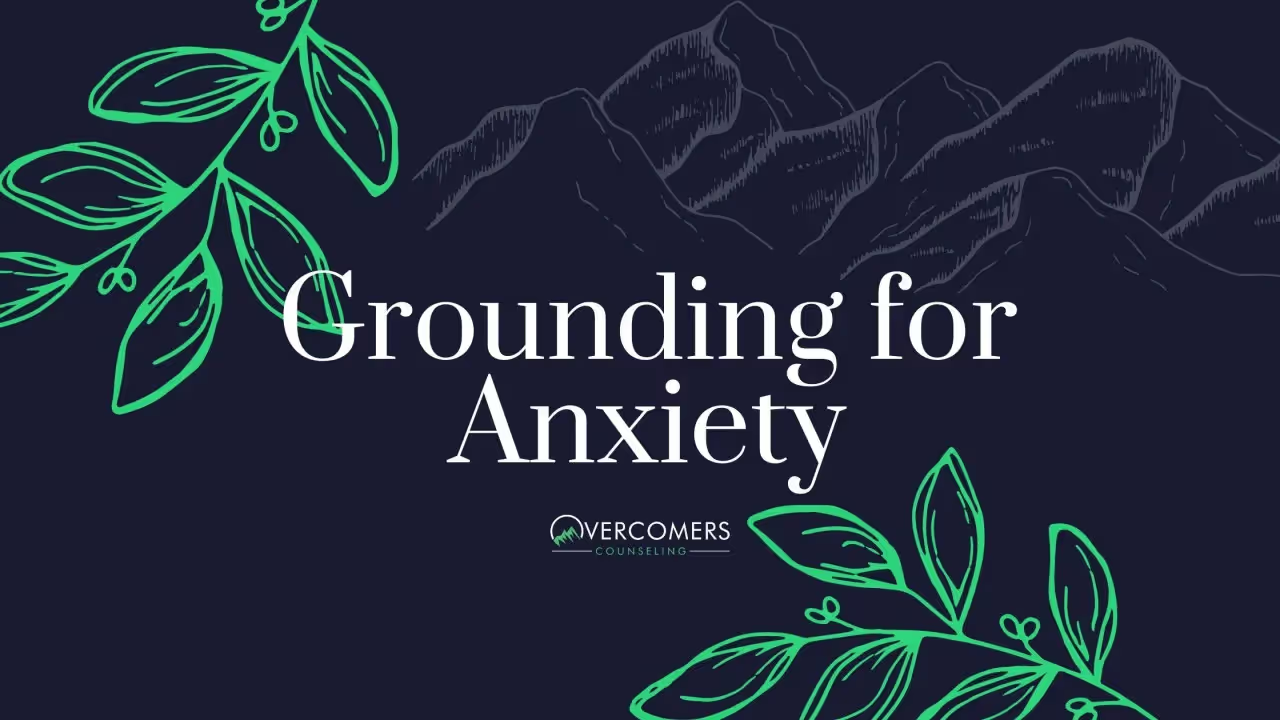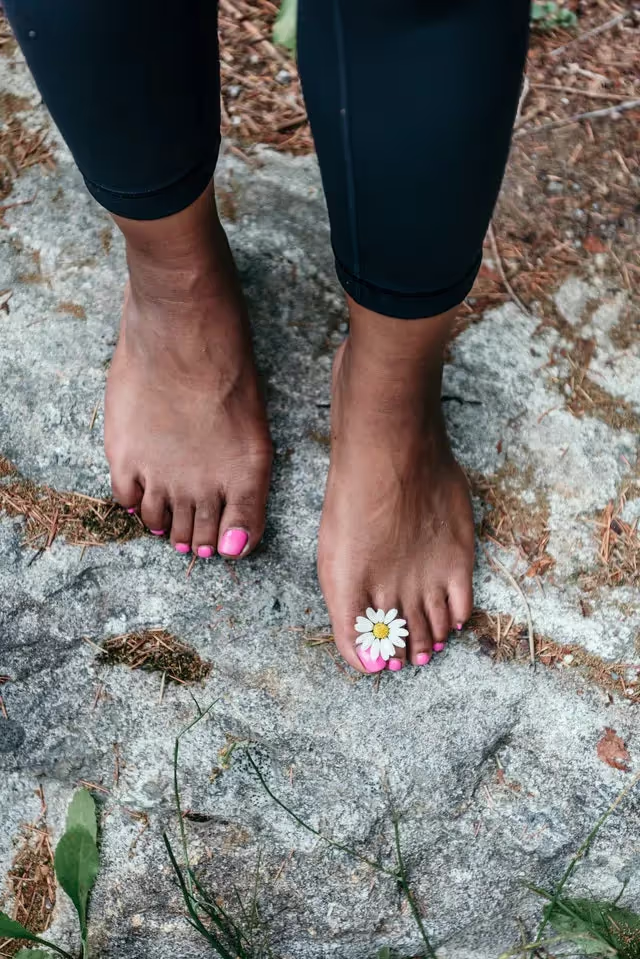Starting your day with grounding is a great way to reduce anxiety, gain focus, become more grounded, and connect with nature.Grounding techniques for...

Starting your day with grounding is a great way to reduce anxiety, gain focus, become more grounded, and connect with nature.
Grounding techniques for anxiety, often referred to as "Earthing," offer a practical and effective way to alleviate anxiety and bring oneself into the present moment.
These methods provide a means to anchor and externalize anxious feelings, making them accessible even for beginners without prior meditation or visualization experience.
No need for memorizing complex chants or assuming specific postures; just a patch of earth, some fresh air, and a few undistracted minutes are all you require.
Beginning your day with anxiety grounding techniques can enhance focus, foster a deeper connection with nature, and reduce stress.
Forget any stereotypes—these grounding exercises have robust scientific support and are recommended by mental health professionals for addressing panic attacks or anxiety attacks through simple, physical sensations.
Centering is an integral part of grounding techniques for anxiety, helping you focus your energy inward and connect with your physical self.
As you experience the release that comes from grounding, shift your attention to centering. Visualize drawing all your thoughts, anxious feelings, and energy back into your body.
This process, known as centering, can be done in any position—standing, sitting, or lying down—whichever feels most comfortable.
You have the flexibility to make this practice as short or as extended as you need.
After feeling relaxed and present, it's time to ground your anxiety using physical grounding techniques.
This is your grounding cable, journeying through roots, rocks, and water, eventually connecting to the Earth's core. Visualize the core in any form—crystal, seed, or molten lava—and connect to it deeply.
Open your eyes if you wish and take a few deep breaths, feeling calm and connected to the Earth.
Engage all your senses to enhance the grounding process.
Notice what you can taste, smell, and feel. Use rapid breathing exercises and body scans to release muscle tension and focus on the here and now.
These physical techniques can help distinguish between a panic attack vs anxiety attack and reduce anxiety symptoms.
As you practice visualization, let your body feel the calmness and focus this grounding technique provides.
Using grounding techniques regularly can effectively manage anxiety disorders and distressing thoughts in your daily life.
Listening to a favorite song or observing distant traffic may also assist in calming anxious thoughts.

There is solid science supporting the practice of grounding for anxiety.
As you probably learned in school, everything is made of atoms.
You might remember that atoms are made of protons, electrons, and neutrons.
Things that have more protons, such as your smartphone and your computer, carry with them a positive charge.
Things that have more neutrons, such as dirt and grass, carry with them a negative charge.
While we typically associate positive with good and negative with bad, this actually works in the opposite way.
Things that are positively charged by too many protons can be harmful to both your physical health and your mental health.
Your television, your smartphone, your computer - and most electronic devices - emit a positive charge.
This means that you can collect too many protons by working all day at your computer, constantly checking your phone, or binge-watching shows at night.
This can lead to a decrease in both physical health and mental health.
Grounding for anxiety is a way to combat this positive charge and ease your anxiety.
The surface of the Earth is full of neutrons. When you walk or sit on the ground, it is called grounding.
Some people might refer to it as "Earthing."
Whatever you want to call it, it is Nature's way of neutralizing harmful charges.
It's important that you ground while barefoot, so your feet can create a closed circuit with the ground.
This will begin to neutralize the protons you've picked up from working and living in the modern world disconnected from Nature.
Once your bare feet touch the Earth, take several really deep breaths.
You might even want to stretch your arms out a bit while you breathe.
Start by focusing on the feeling of the ground.
Wiggle your toes a bit.
Or, you can lean into your feet to feel the connection more strongly.
You might even want to rock back and forth a bit.
You can do this as long as you want, but try to breathe until you feel a noticeable release.
This means your body is becoming neutralized.
You can release all charged states by grounding since it puts your body's charge back at neutral.
This is why grounding for anxiety is so effective.
You're tapping directly into the healing power of the Earth.

Studies have shown that grounding has a significant impact on anxiety and other issues.
Grounding for anxiety regularly has been shown to reduce inflammation which is linked to depression, anxiety, and chronic illness.
Grounding has also been shown to improve sleep, reduce stress, promote physical and mental healing, relieve pain, and calm anxiety and the nervous system.
If experiencing anxiety becomes overwhelming, consulting a mental health professional can provide valuable support.
They can offer additional mental grounding techniques and mental health services tailored to your needs, helping you navigate anxiety disorders and find effective strategies to feel calm and centered.
Grounding for anxiety is a great, natural way to start feeling better right now.
Reconnecting with the Earth is reconnecting to ourselves.
And, grounding for anxiety helps us reconnect with what is truly important.
It's important that you feel comfortable discussing personal matters with your therapist in order to open up and get more out of therapy sessions; therefore finding someone who meets certain criteria like experience level, expertise areas, and personality is key when selecting a therapist who can give meaningful feedback about how best handle issues related to anxiety or other mental health concerns.
Ignoring anxiety can exacerbate symptoms and make it more challenging to manage over time. This can result in a negative impact on your personal, professional, and social life, leading to feelings of isolation and even depression.
Addressing anxiety is crucial because it can significantly impact your quality of life and overall well-being. Left untreated, anxiety can lead to more severe mental health issues, relationship problems, and difficulty functioning in daily life.
To reduce your anxiety, you can practice relaxation techniques such as deep breathing, progressive muscle relaxation, guided imagery, and mindfulness practices. Additionally, regular exercise has been found to be beneficial in managing stress and improving mental health.
Yes, Medicaid provides insurance coverage for therapy services specifically designed to help individuals struggling with anxiety, depression, and other mental health conditions.
The duration of anxiety counseling varies for each individual, depending on the severity of their anxiety and their progress in therapy. Our therapists will regularly assess your progress and adjust your treatment plan as needed.